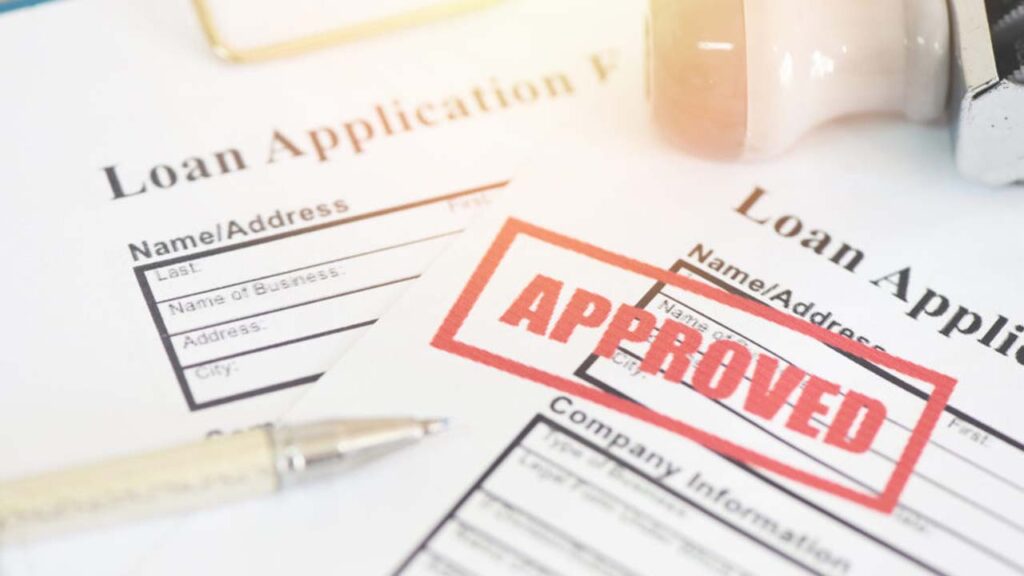SGDLoan.com – For individuals with a lower salary, securing a personal loan can seem like an uphill task. In Singapore, banks tend to set income thresholds that may seem out of reach. However, a personal loan for low income is possible if you know where to look and how to apply.
In this article, we will explore viable personal loan options, the eligibility requirements, and provide tips to improve your chances of securing the loan.
We’ll also discuss alternatives to bank loans, such as licensed moneylenders, for those earning below the usual minimum income requirement. Understanding these factors can help you make informed decisions and navigate the loan process with confidence.
Understanding Minimum Income Requirements for Personal Loans

In Singapore, the eligibility for personal loans is largely dependent on the income level of the borrower. The general rule is that banks and financial institutions set minimum income thresholds for applicants.
For Singapore Citizens and Permanent Residents, most financial institutions require a minimum annual income of S$20,000 to S$30,000. If you’re a foreigner, the minimum annual income requirement usually increases to S$40,000 to S$60,000.
These thresholds are essential, but they are not the only criteria. Lenders also evaluate other factors such as the type of employment you have, your credit history, and your existing financial obligations. If you’re a salaried employee with a stable job, your chances of qualifying for a loan increase.
It’s important to note that while the income requirement is a key factor, financial institutions also look at how much debt you currently have and how you’ve handled past financial commitments.
Best Personal Loan for Low Salary Options in Singapore

Even with a low salary, there are personal loan options available in Singapore. Many banks have made their loan products more accessible for individuals with lower incomes. Below are some of the most popular loans available for those earning a modest income.
Here’s a comparison of some bank loan options:
| Bank/Provider | Min. Annual Income | Interest Rate (From) | Key Features |
|---|---|---|---|
| Standard Chartered CashOne | S$20,000 | 1.90% p.a. | Fast approval, no processing fee |
| POSB Personal Loan | S$20,000 | 1.99% p.a. | Borrow up to 10x your salary, online application |
| OCBC ExtraCash | S$20,000 | 2.88% p.a. | Flexible repayment terms, competitive rates |
| CIMB Personal Loan | S$20,000 | 3.38% p.a. | Waived processing fees for loans above S$5,000 |
| Citibank Quick Cash | S$30,000 | 3.45% p.a. | Quick disbursement, no upfront fees |
When applying for a loan, it’s crucial to compare not just the interest rates, but also the terms and fees associated with the loan. This can help you decide which loan is most suitable for your financial situation.
What to Know Before Applying for a Personal Loan for Low Income Singapore

Before proceeding with your application, there are several key considerations you must take into account to increase your chances of approval.
Debt-to-Income Ratio (TDSR)
One of the most significant factors lenders will assess is your Total Debt Servicing Ratio (TDSR). This ratio is a measure of how much of your monthly income goes toward servicing debt. In Singapore, the Monetary Authority of Singapore (MAS) mandates that your TDSR must not exceed 55%. This means that all of your monthly debt payments, including the new loan, should not be more than 55% of your gross monthly income.
Credit Report
Lenders will also review your credit report, which gives insight into how well you’ve managed your past financial obligations. A clean credit history, especially if you’ve consistently paid off debts on time, can significantly improve your chances of securing a loan. However, if you have a poor credit history, it may be harder to qualify for a loan, or you may be offered a loan at a higher interest rate.
Loan Tenure and Interest Rates
Another important factor to consider is the loan tenure. The longer the tenure, the smaller your monthly repayment, but the more interest you will pay in total over the course of the loan. On the other hand, a shorter loan tenure will mean higher monthly payments, but less total interest.
Interest rates also play a crucial role in your loan’s affordability. Always ensure that you fully understand the effective interest rates (EIR) as they give a more accurate reflection of your loan costs, including any fees and charges.
Tips to Improve Your Chances of Loan Approval

If your income is lower than the bank’s requirements, you can still take steps to improve your chances of being approved for a loan.
Maintain Stable Employment
Lenders prefer borrowers who have a stable source of income. If you’ve been employed with your current employer for at least six months and have a steady income, this will work in your favour. It demonstrates that you have a reliable income stream.
Pay Down Existing Debts
If you have other outstanding debts, reducing them will improve your debt-to-income ratio and strengthen your application. Try to clear any credit card balances or small loans before applying for a personal loan. This makes you appear less risky to lenders.
Apply for a Smaller Loan
If your income is on the lower end of the spectrum, applying for a smaller loan amount can increase your chances of approval. A smaller loan is less risky for the bank, and they may be more willing to approve it.
Consider Applying with a Co-Applicant
If you are applying for a loan with a lower income, consider including a co-applicant who has a higher income. This can be a spouse, family member, or friend. The lender will evaluate both incomes, improving the likelihood of approval.
Explore Licensed Moneylenders
Licensed moneylenders may offer an alternative for those who don’t meet the requirements for traditional bank loans.
These lenders are regulated by the Ministry of Law, and they provide loans with lower income requirements.
For example, if you earn less than S$20,000 annually, you can still borrow from a licensed moneylender, who may offer you a loan up to S$3,000.
However, it’s essential to ensure that you are borrowing from a legitimate moneylender listed on the Ministry of Law’s registry to avoid scams.
Responsible Borrowing with a Low Salary

When borrowing with a low income, it’s crucial to be responsible and realistic about your ability to repay. Borrowing money should never compromise your ability to meet essential needs like rent, utilities, or groceries.
To borrow responsibly, always:
- Assess your monthly budget to ensure that loan repayments can fit comfortably within your finances.
- Only borrow what you absolutely need, and never take on debt that you cannot manage.
- Choose a loan with terms you can realistically meet, and avoid taking loans with excessive repayment periods if you can afford shorter tenures.
By borrowing responsibly, you not only ensure that your financial health remains intact, but you also create a good track record for future loan applications.
In conclusion, obtaining a personal loan for low income in Singapore is achievable with the right knowledge and preparation. By understanding the available loan options, eligibility criteria, and tips to improve your approval chances, you can confidently apply for a loan that suits your financial needs.
As long as you approach borrowing with caution and responsibility, securing a personal loan on a low salary is possible. Whether through traditional banks or licensed moneylenders, ensuring you select the best loan option will help you meet your immediate financial needs without overburdening your future finances.









